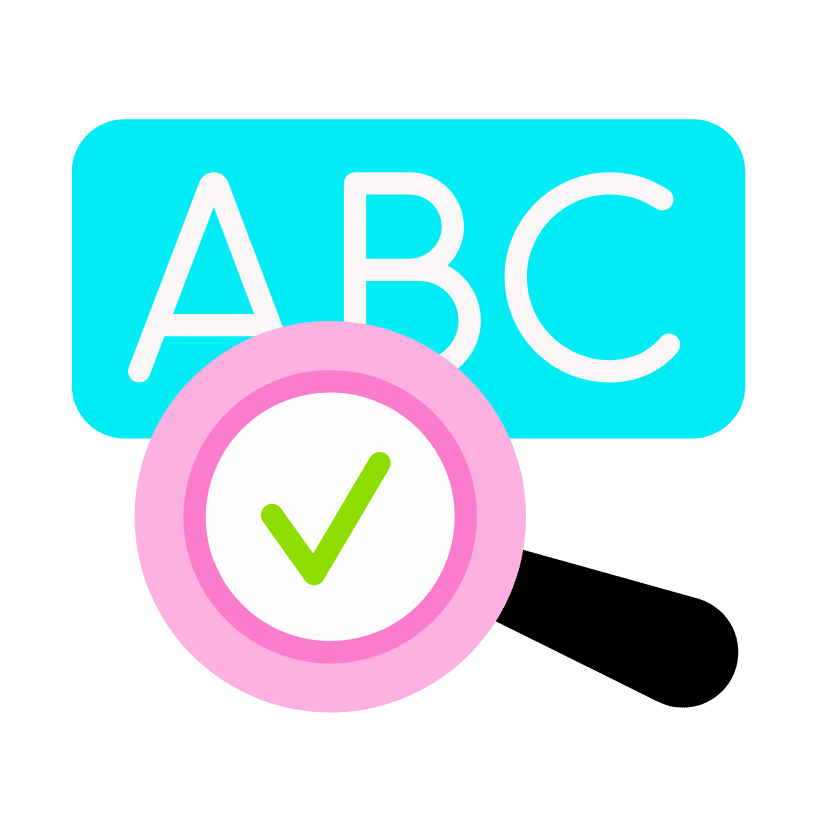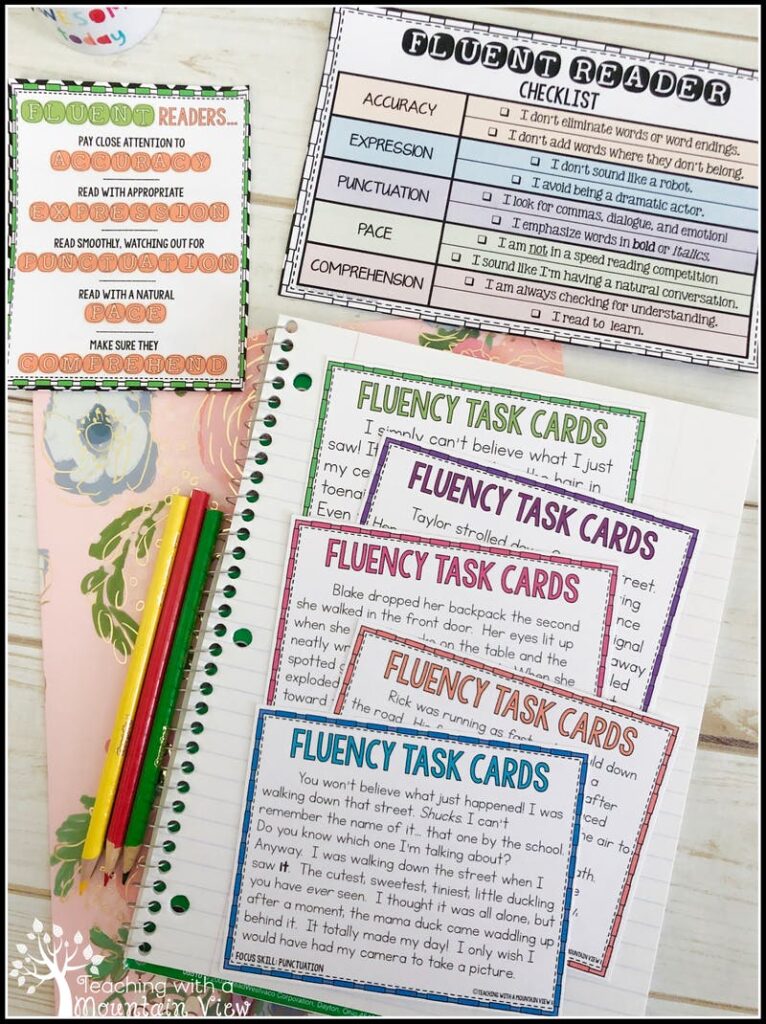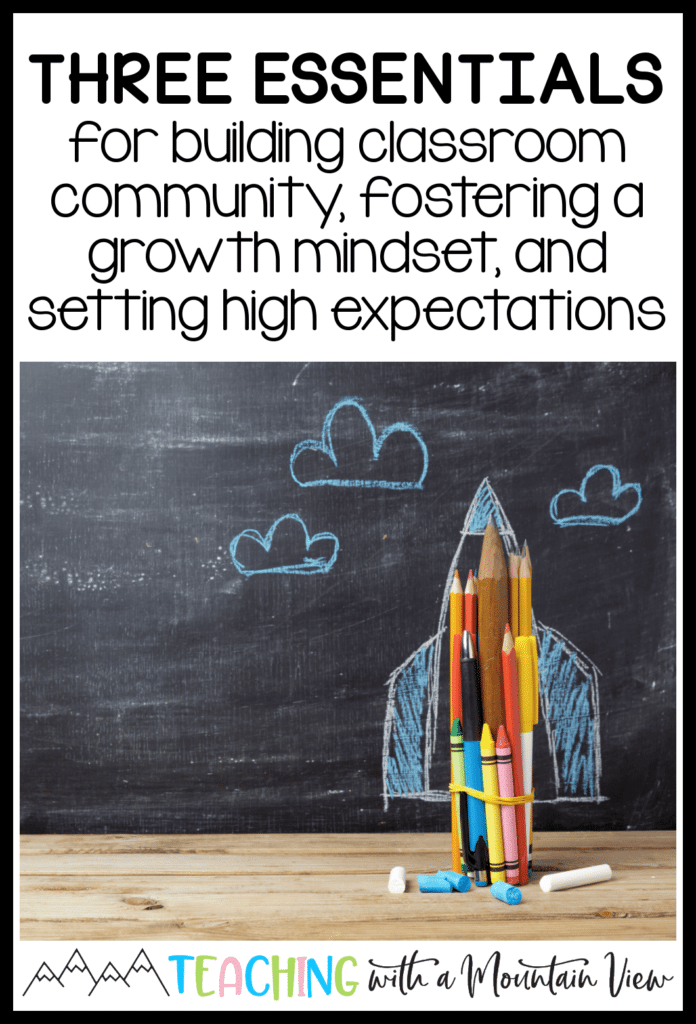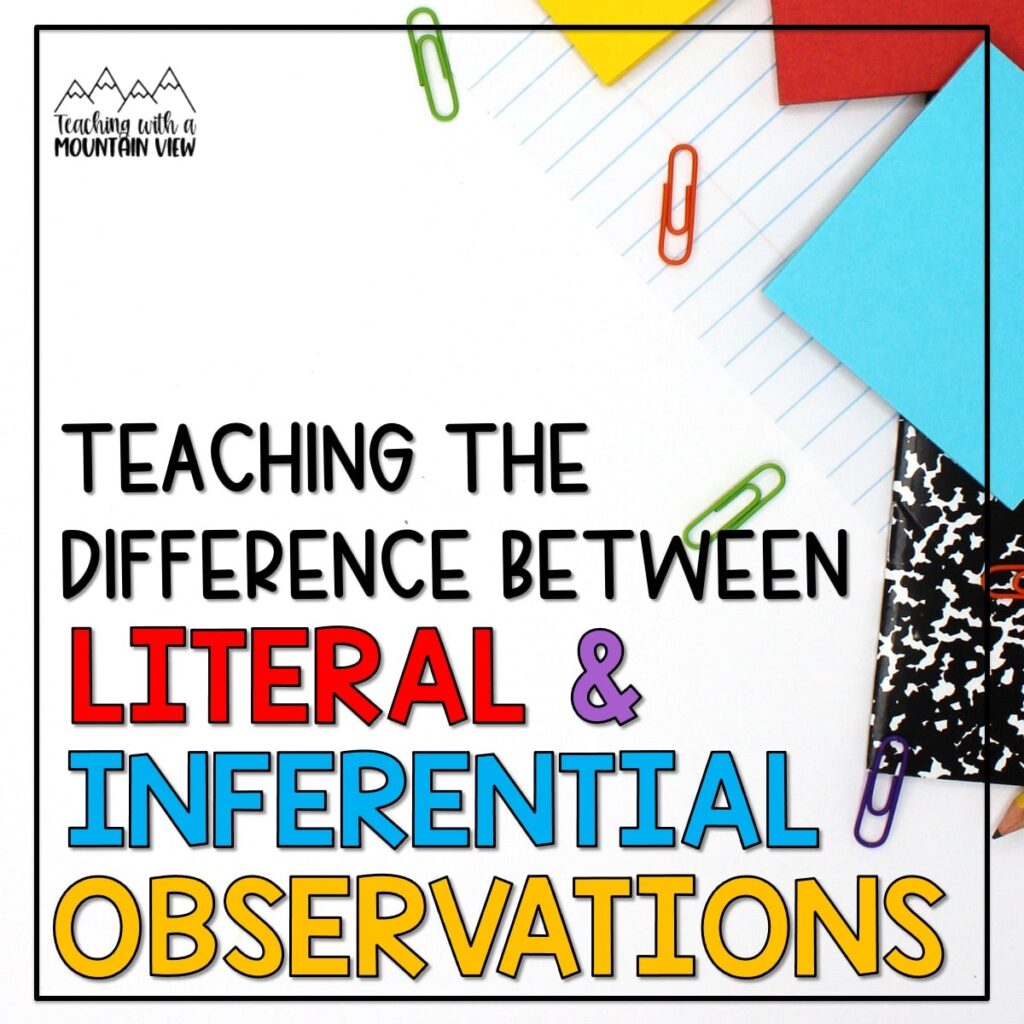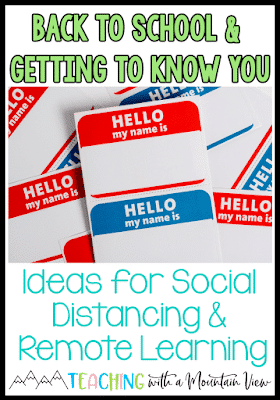How to BEST Utilize Your Classroom Parent Volunteers
By Mary Montero
Share This Post:
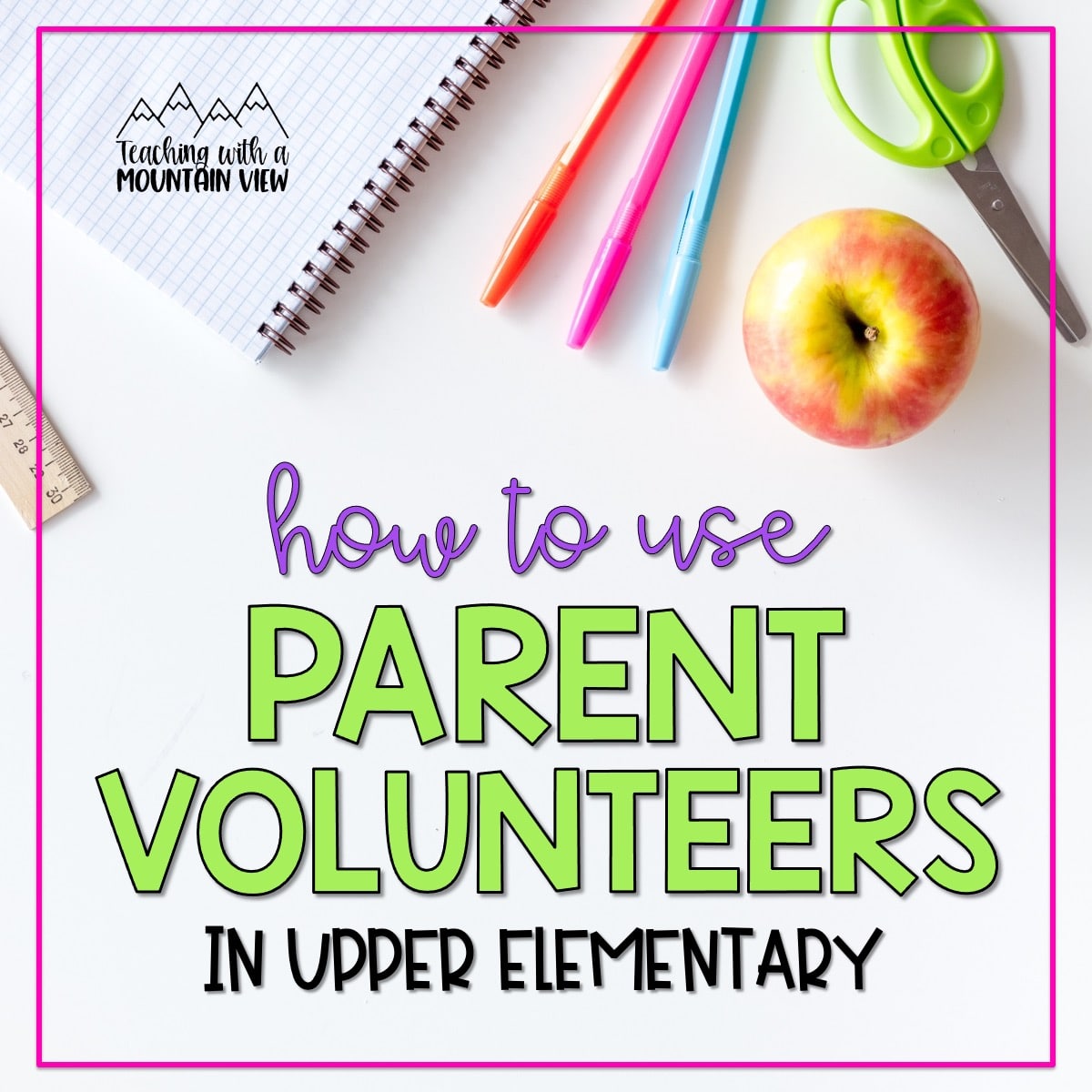
I have always been fortunate to work at schools where parents want to volunteer! I was tickled pink that I had so many classroom parent volunteers who wanted to join, but I also wanted to make sure I was using them in a way that was helpful and productive. We can almost always use a helping hand, but I wasn’t entirely sure what activities or duties to assign my classroom volunteers. As teachers, we become so used to doing it all ourselves, it’s a strange feeling to pass on responsibility to another adult. However, learning to embrace those extra hands and utilizing parent volunteers in the classroom can become an amazing part of your day!
Now when I have a volunteer in my room, I have a go-to list of items they can help with. If you are scratching your head wondering how you can best utilize your classroom parent volunteers, here is your guide!
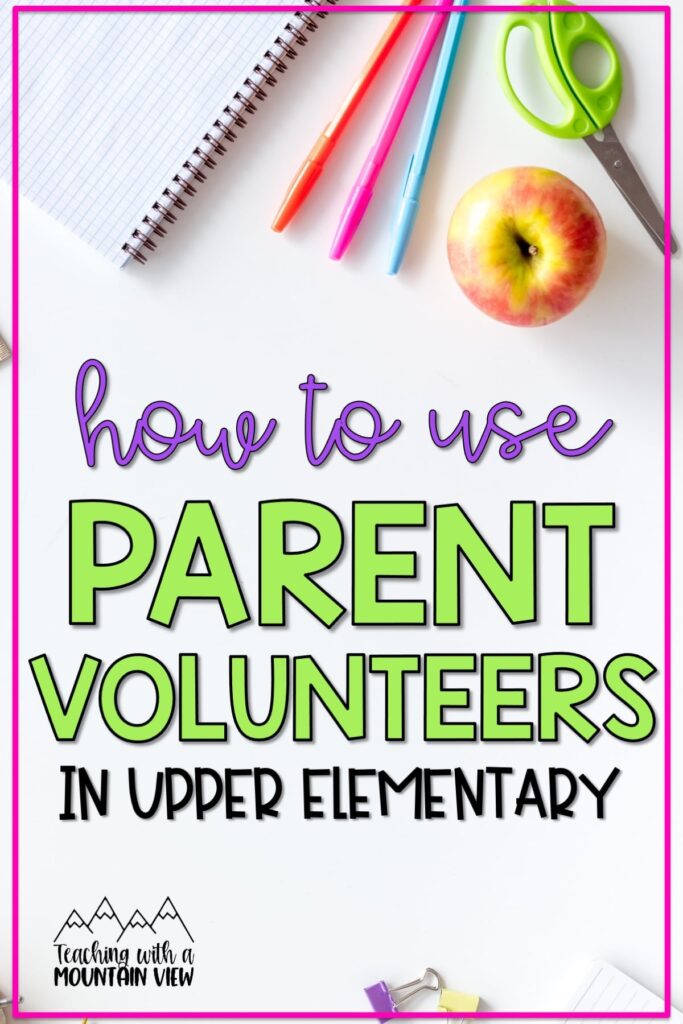
Organize Your Classroom Parent Volunteers
Receiving help is great, unless the stress of organizing help outweighs the benefits of having it. Make it simple for yourself by creating some easy-to-use systems that make the process seamless for everyone. Note: Always make sure you are aware of what rules your district has set forth about what parents can and can’t do.
Room Parents: Consider having a room parent who is the point person for organizing all of your volunteers. My current school uses this system, and it’s awesome!
Find a Sign Up System: Make sure you have a simple sign-up system. I recommend something that requires little to no effort on your end. For example, create a Google Sheet with a calendar for the month or year. Write down or highlight the days a volunteer would be helpful. A parent volunteer can easily write their name down for a duty, and then other parents can see what spots are filled. Prefer paper and pencil? Share a signup sheet during back to school night, parent-teacher conferences, and other school events so parents can sign up often. I also love using SignUp Genius and inserting timeslots where I could use help!
Communicate With Parents: Find a simple and efficient way to communicate with volunteers. Parents may have questions about their duties, need to let you know they can’t fulfill their duty, etc. Would you rather be notified by phone, email, or a note with the students? Choose an option that’s easy for you, and causes the least disturbances to your day.
After you have determined how volunteers will sign up and communicate with you, make this information easily accessible! For example, you might want to include it in your monthly newsletter or in your Class Dojo feed so if parents miss the call for volunteers at the beginning of the school year, they still have opportunities to volunteer later on.
Ways Your Classroom Parent Volunteers Can Help
Now that you have a way for parents to sign-up, it’s time to determine activities for classroom volunteers. Here are some ways I like to utilize my volunteers.
#1: Big Events and Parties
When you are having a party or classroom / school event, ask for volunteers. I did parties on my own for years, and when I began sitting down with a room parents to discuss ideas then letting them take the lead, it was a HUGE stree reliever. Here are some items a volunteer can help with:
- Set up decorations in the school, hallway, or classroom
- Bring in food
- Help serve food during the party or event
- Help students complete activities
- Organize class games
- Check-in people during an event (back to school, meet the teacher, etc.)
- Make sure that supplies are refilled as needed during events
- Contact other parents to notify them of upcoming events or parties
#2: Preparing for Lessons
I think every teacher can agree that with more time for planning, we can be more effective, engaging educators. What better way to make more time for planning than to ask our classroom volunteers to help us prepare for our lessons?! Here are a few things they can help with:
- Printing, cutting, stapling, hole-punching! Bonus: They can do this at home! Many parents work during school hours, but they are more than happy to do these tasks after work.
- Preparing materials for a classroom project: I always have parents prep my flipbooks for lessons and cut out task cards!
- Getting materials prepped in containers or buckets
- Reaching out to parents about classroom supplies that are needed
- Recording oral reading of materials for students who need it
#3: Classroom Clean-Up and Organization
There are some classroom items that just never seem to be organized once the year starts. A classroom volunteer is a great person to take over organizing and cleaning out spaces in your classroom to help make the space cleaner and more efficient. Here are some things I typically ask for:
- Organizing Field Trip Money/Permission Slips (Double Check District Rules First!)
- Organizing Scholastic Book Orders
- Taking down and redoing a bulletin board
- Placing new student work on the wall
- Stamping, Covering, Organizing and handling books in the classroom library
- Cleaning out that closet or cabinet that is ready to explode
- Sorting classroom games /puzzles for indoor recess or centers
- Disinfecting classroom sets of materials
#4: Communication with Other Parents
Classroom or school wide events are a ton of fun and so important for building community, but they also take a lot of planning and communication. I have found that asking parent volunteers to communicate with other families helps me get the word out about important events. There is almost always one parent in class who has an eye for design and can create lovely posters to help you advertise these events. Plus, this is an easy task for parents who need an at-home way to help. Here are some things they can help coordinate or spread the word on:
- Field Trips
- Back to School and Open House events
- Classroom parties
- Extracurricular events, such as art shows or plays
- Fundraising opportunities
- Needed classroom supply donations
- Upcoming tests or grading periods
#5: Classroom Support
When you think about having parent volunteers in your room, you may also find that some parents are especially helpful working directly with students to provide extra support. Here are some of my go-to ways for parents to support other students:
- Set up a Math Fact or Reading Fluency Routine practicing with students one on one
- Run an advanced group working on enrichment puzzles
- Run a small group with a game like Topple Blocks
- Pull a student who might need help making up work
- Work with a student who is struggling with an assignment
- Read tests or daily materials to students with oral accommodations
- Record oral reading for a test or assignment (great at-home task)
- Read a book to the whole class (Mystery Readers are SO fun!)
- Plan and help with the creation of holiday crafts/gifts
Bottom Line
If I only had ONE parent volunteer each year, I would use them to help my students practice math facts or oral reading fluency. If you’re new to this kind of fluency practice, here are FREE oral reading fluency lessons to help you get started.
If you have the opportunity to work with classroom parent volunteers, I hope this guide is helpful for organizing their time and delegating responsibilities. It can be intimidating to have a student’s parent in your classroom, but these activities can make their time useful and help make your job just a little bit easier!
What are some ways you use classroom parent volunteers? We’d love to have you share them with us in our FREE Inspired In Upper Elementary Facebook group, especially for 3rd-5th grade teachers.
Mary Montero
I’m so glad you are here. I’m a current gifted and talented teacher in a small town in Colorado, and I’ve been in education since 2009. My passion (other than my family and cookies) is for making teachers’ lives easier and classrooms more engaging.


